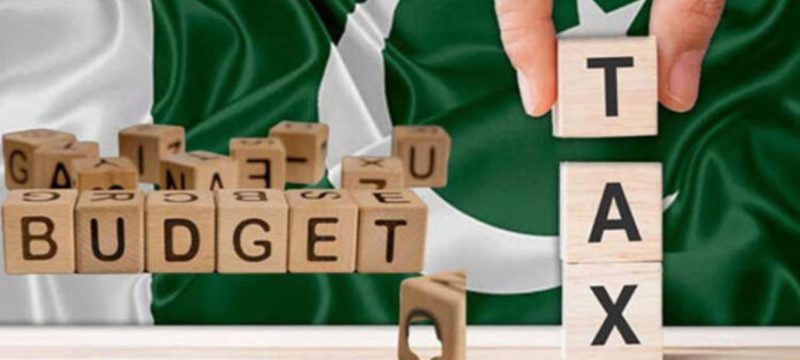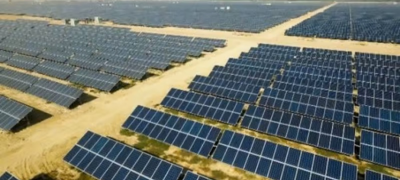Pakistan is preparing for the announcement of its federal budget for the fiscal year 2025-26, scheduled for Tuesday, with key details and policy directions already coming to light.
The National Economic Survey will be released on Monday, setting the foundation for a critical budget announcement amid rising inflation, increasing debt, and ongoing discussions with the International Monetary Fund (IMF).
According to government sources, the federal budget to be presented in parliament will total Rs17,600 billion. The Federal Board of Revenue (FBR) has been tasked with a tax collection target of Rs14,130 billion, within an estimated total revenue of Rs19,400 billion.
Read more: Budget 2025: Government Plans Major Cut in Solar Net Metering Rate from Rs27 to Rs10 per Unit
Debt servicing will remain a major budget item, with Rs6,200 billion allocated, highlighting Pakistan’s continued challenges with both domestic and external borrowing. Despite these high expenditures, the government aims to keep the budget deficit unchanged, reflecting a delicate balance between spending needs and fiscal discipline.
To ease the burden of rising living costs, the government proposes a 10% salary increase for government employees, while pensions for retired public servants may rise between 5% and 7.5%.
The defense budget is expected to grow by 18%, driven by regional security concerns and inflation. Development funds will include Rs13.58 billion for education, Rs14.3 billion for health, and Rs16.22 billion for digital economy and IT sectors, signaling a focus on modernization and youth employment.
Finance Minister Muhammad Aurangzeb is set to deliver the budget speech in the National Assembly on June 10, outlining the government’s economic strategy, development priorities, and proposed tax reforms for the upcoming fiscal year.
The National Assembly’s budget session calendar, approved by Speaker Sardar Ayaz Sadiq, includes key dates for budget presentation, debates, and voting. After the June 10 budget presentation, the assembly will pause on June 11 and 12, then begin general budget debates on June 13, continuing through June 21. Following a break on June 22, discussions on expenditures will occur on June 23, with debates and voting on demands and cut motions scheduled for June 24 and 25. The Finance Bill debate and vote will take place on June 26, followed by approval, and the session will close on June 27 with supplementary grant discussions.
The Speaker’s office noted that any changes to the schedule require their approval.
Preliminary reports indicate that the government missed several economic targets despite better overall performance compared to the previous year. GDP growth fell short of the 3.6% target, reaching only 2.7%, while inflation remained contained at 5%, well below the target of 12%. Per capita income was recorded at Rs509,174, missing the target of Rs543,968 by Rs34,794. Indirect tax revenue exceeded expectations, reaching Rs8,393 billion against the target of Rs7,799 billion.
Agricultural growth underperformed at 0.6%, far below the 2% target, with major crop outputs declining sharply — cotton by 30.7%, maize by 15.4%, sugarcane by 3.9%, paddy by 1.4%, and wheat by 8.9%. Minor crops saw slight growth, exceeding targets at 4.8%, and production of vegetables, fruits, oilseeds, spices, and fodder improved.
The industrial sector grew 4.8%, surpassing the 4.4% goal, driven by gains in textiles, automobiles, garments, tobacco, and petroleum products. However, declines occurred in food, chemicals, iron, steel, electrical machinery, and furniture production.
The services sector growth lagged at 2.9%, below the 4.1% target, while the construction sector outperformed with 6.6% growth compared to a 5.5% target. Large-scale manufacturing contracted by 1.5%, missing its 3.5% growth goal, but small-scale industries grew 8.8%, exceeding the 8.2% target.
The electricity, gas, and water supply sector recorded a remarkable 28.9% growth, significantly surpassing the 2.5% target. The health and education sectors also exceeded goals with growth rates of 3.7% and 4.4%, respectively.
Private sector borrowing increased sharply from Rs294 billion to Rs870 billion. Total revenue grew 36.7% to Rs13,367 billion, and the tax-to-GDP ratio improved from 6% to 8%.
Finance Minister Muhammad Aurangzeb will formally release the National Economic Survey for the current financial year on Monday at 2:30 pm.









